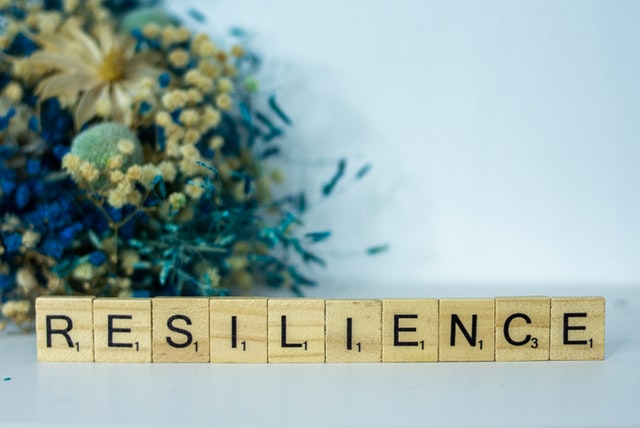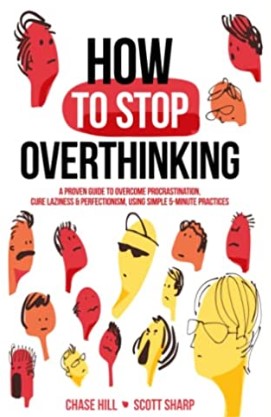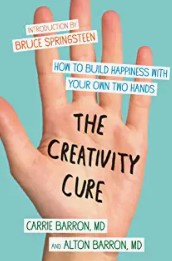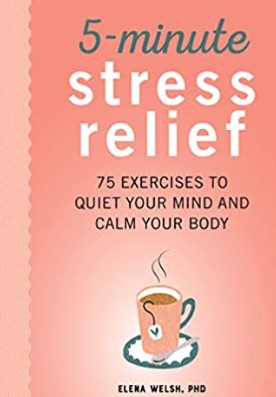
We take stress seriously at St Monica Trust.
During spring in 2018 and 2019, we ran a stress audit, designed by the Health and Safety Executive, with our executive and leadership teams to identify and address the potential causes of stress.
We all know what it’s like to feel stressed, but it’s not easy to pin down exactly what stress means. When we say things like ‘this is stressful’ or ‘I’m stressed’, we might be talking about: Situations or events that put pressure on us – for example, times where we have lots to do and think about, or don’t have much control over what happens. Our reaction to being placed under pressure – the feelings we get when we have demands placed on us that we find difficult to cope with
How does stress affect me physically?
Stress is the body’s reaction to adverse stimuli – when we are put under pressure. The brain recognises the situation as threatening, which triggers the release of chemicals in the brain. These chemicals travel in our bloodstream down to our adrenaline glands which are located above the kidneys which in turn releases adrenaline into our bloodstream. Adrenaline changes the amount of blood going to the stomach and digestive track, meaning that more blood goes into our muscles – allowing our fight or flight response to kick in if we need to run away or defend ourselves!

However, in the 21st century there are few occasions where our fight or flight response is the best course of action. A lack of blood going to the digestive track can leave us feeling nauseous, our heart rate and breathing increases and we can feel under the weather because our immune system is reduced. This video in the resources section to the right helps to summarise this process.
Why do certain things make me feel stressed?

The amount of stress we feel in different situations can depend on 1. our perceptions of the situation – this might be connected to our past experiences, our self esteem and how our thought processes work. 2. How skilled we are at dealing with pressure. Our emotional resilience to stressful situations.
Can stress can be helpful?
Stress isn’t all bad – in fact the way we perceive our stress can make all the difference. When our breathing increases, more oxygen enters the body and more CO2 leaves. The more oxygen in our body means that the more efficient our thought processes and reaction time. Research has shown that perceiving oxygen intake positively can improve health and well-being and even extend longevity. Watch the video in the resources section on how to make stress your friend.
Resources:
Tips on managing stress – Able Futures
Videos:
Hints and Tips:
The Stress Management Society explains how it takes 30 days to turn actions into habits. A 30 day challenge encourages you to pick one action each for your Physical, Mental and Emotional Wellbeing to carry out every day.
Click on the image below for ideas to get you started.

All of the following help to reduce stress levels. Click on the images below for more information:

When we make something, even imperfectly, especially imperfectly, we are truly expressing ourselves, helping us to reduce our levels of stress and anxiety.
The Dalai Lama says “Sleep is the Best Meditation.” Click the image for 5 tips for falling asleep quicker.

Books:
What can you do to reduce your stress levels?
Address some of the causes of stress: Although there will probably be lots of things in your life that you can’t do anything about, there might still be some practical ways you could resolve or improve some of the issues that are putting pressure on you.
Accept the things you can’t change: It’s not easy, but accepting that there are some things happening that you probably can’t do anything about will help you focus your time and energy more productively.
Identify your triggers: Working out what triggers stress for you can help anticipate problems and think of ways to solve them. Even if you can’t avoid these situations, being prepared can help. Take some time to reflect on events and feelings that could be contributing to your stress (you might want to do this with a friend or family member).
Write a list of the things that are bothering you. You might be surprised to find out just how much you’re coping with at once. Remember that not having enough work, activities or change in your life can be just as stressful as having too much to deal with. There are other practical things we can do to help us cope:
- Ensure that we don’t become obsessed by the News and A Slave to Tech
- Stay connected with loved ones
- Take care of our emotional and mental health by relaxing, eating well, staying active, having a good sleep routine etc.
- Adopt a positive mindset
- Learn How to Master Our Time




